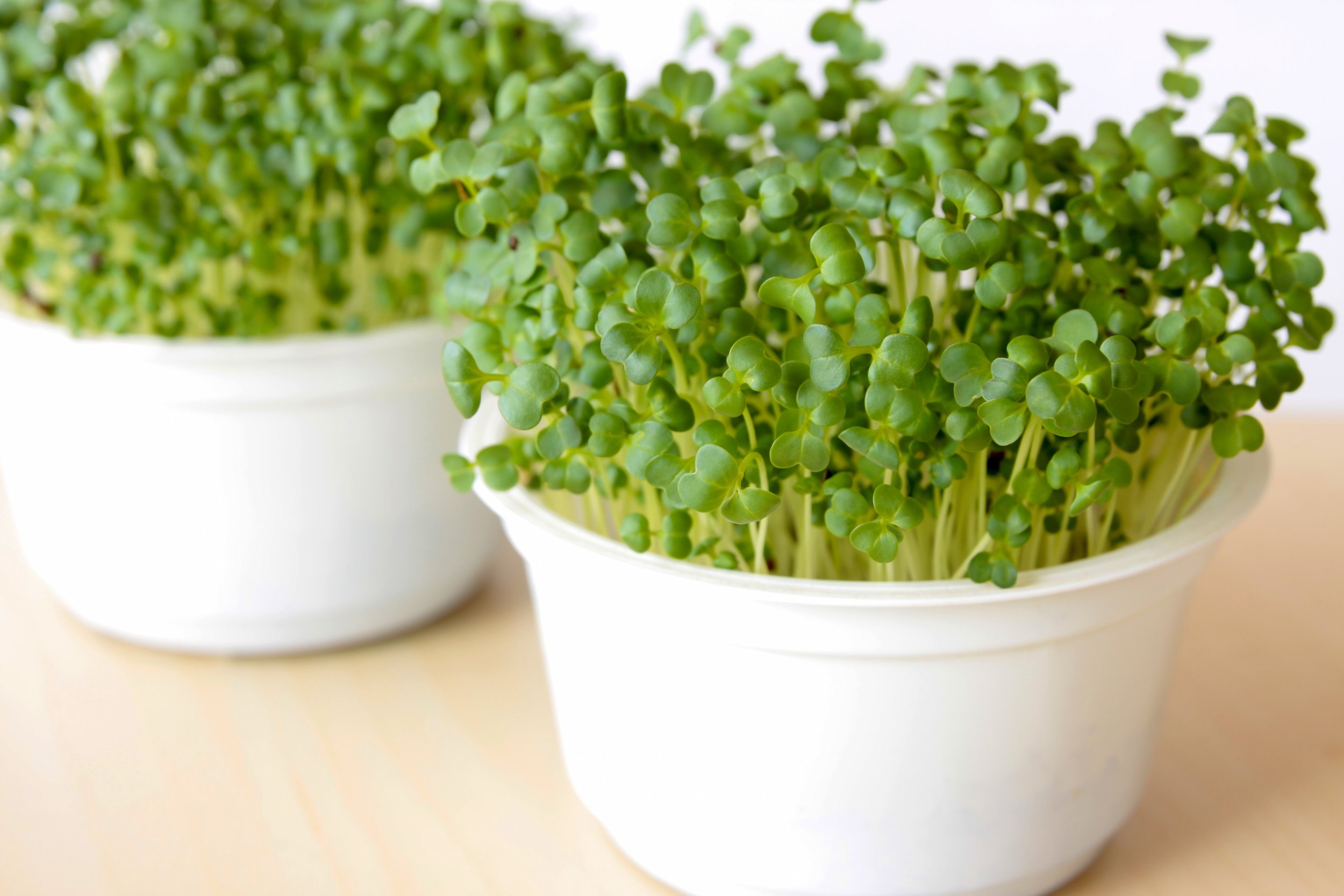Nutrition Spotlight: Broccoli Sprouts
Nutrition Spotlight: Broccoli Sprouts
When it comes to superfoods that pack a powerful punch, broccoli sprouts deserve their moment in the spotlight. These tiny green wonders are bursting with nutrients and health-promoting compounds that can contribute to your overall well-being. Check out the remarkable health benefits of broccoli sprouts and why they are worth incorporating into your diet (after speaking to your doctor, of course):
1. Abundant in sulforaphane. One of the most notable health benefits of broccoli sprouts is their high content of sulforaphane, a potent antioxidant and natural plant compound. Sulforaphane has been extensively studied for its potential to combat oxidative stress and reduce inflammation in the body, helping to protect cells from damage.[1]
2. Supports detoxification. Sulforaphane in broccoli sprouts has been linked to promoting detoxification by supporting the body's natural ability to eliminate harmful substances. It activates enzymes that play a role in detoxifying certain chemicals and pollutants, potentially reducing their negative impact on health.[2]
3. May enhance heart health. Broccoli sprouts contain compounds that may contribute to heart health. Studies suggest that sulforaphane can help improve cholesterol levels by reducing LDL (bad) cholesterol and increasing HDL (good) cholesterol. Additionally, the antioxidants in broccoli sprouts may help protect blood vessels from oxidative damage.[3]
4. Supports digestive health. Broccoli sprouts are a good source of dietary fiber, which supports healthy digestion. Fiber promotes regular bowel movements, aids in nutrient absorption, and contributes to a balanced gut microbiome.[4]
5. May enhance immune function. The antioxidants and nutrients in broccoli sprouts can help bolster the immune system. Vitamins C and E found in these sprouts play a role in immune function, while sulforaphane's anti-inflammatory properties may also contribute to immune system support.
6. Promotes skin health. The antioxidants in broccoli sprouts can contribute to skin health by combating free radicals that can damage skin cells. These antioxidants, along with vitamins and minerals, support collagen production and overall skin radiance.[5]
7. Easy to incorporate into your diet. Adding broccoli sprouts to your meals is easy and versatile. They can be used in salads, sandwiches, wraps, smoothies, and more. Their mild flavor and crisp texture make them a delightful addition to various dishes.
From supporting detoxification to potentially enhancing heart health, broccoli sprouts are a nutritional powerhouse that should not be underestimate which is why we included them in our potent 3 Second Salad Fruit & Veggie Juice Caps. With their abundant sulforaphane content and a range of vitamins and minerals, they offer a diverse array of health benefits that can contribute to your overall wellness. Including broccoli sprouts in your diet is a simple yet impactful way to tap into their exceptional nutritional value and pave the way for a healthier and more vibrant life.
[1] Yanaka, A. (2013). Sulforaphane enhances protection and repair of gastric mucosa against oxidative stress in vitro, and demonstrates anti-inflammatory effects on Helicobacter pylori-infected gastric mucosae in mice and human subjects. Current Pharmaceutical Design, 19(1), 6165-6173.
[2] Johnson, I. T. (2002). Glucosinolates: bioavailability and importance to health. International Journal for Vitamin and Nutrition Research, 72(1), 26-31.
[3] Drewnowski, A., & Almiron-Roig, E. (2010). Human perceptions and preferences for fat-rich foods. In Montmayeur J.P., le Coutre J. (Eds.), Fat Detection: Taste, Texture, and Post Ingestive Effects (pp. 265-290). CRC Press/Taylor & Francis.
[4] Borengasser, S. J., Kang, P., Faske, J., Gomez-Acevedo, H., Blackburn, M. L., Badger, T. M., & Shankar, K. (2014). High fat diet and in utero exposure to maternal obesity disrupts circadian rhythm and leads to metabolic programming of liver in rat offspring. PLoS One, 9(1), e84209.
[5] Peterson, C. T., Vaughn, A. R., & Sharma, V. (2018). Using a web-based survey to identify attitudes, beliefs, and practices among people who use dietary supplements. BMC Complementary and Alternative Medicine, 18(1), 153.

